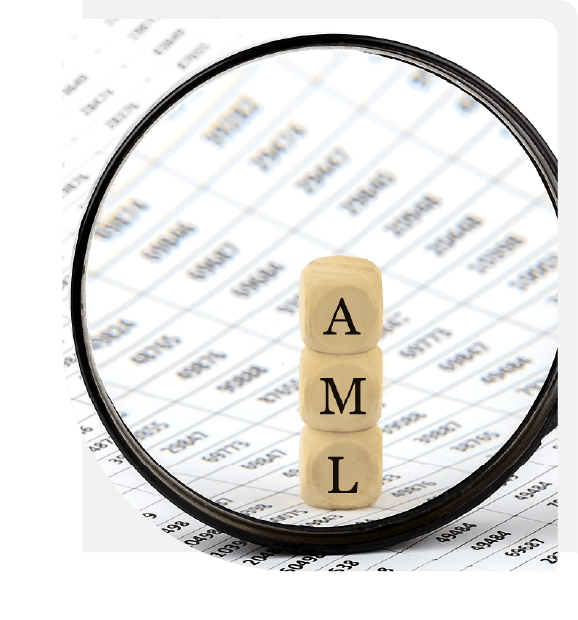Importance of AML/CFT measures
As the world economy is growing and the entire globe is coming together as an integrated society, two vices are trying to take a toll on this society – Money Laundering and Terrorism. Money laundering has been a setback to the global financial system, pumping the illegally generated money into the economy, making it appear to have come from a legitimate source. Such funds generated from criminal activities are used again for multiplying the effect of illegal activities, such as terrorism, and impacting the security and integrity of the countries. The need of the hour is to be resilient against such evils of the society to make it a better place to live, and thus, various countries are coming up with the Importance of AML/CFT measures.
AML/CFT Measures undertaken by various countries
Due to sheer Importance of AML/CFT measures, Singapore Ministry of Law has developed a division under the name of “Anti Money Laundering / Countering Financing of Terrorism,” with whom Cash Transaction Report for suspicious transactions is furnished.
Similarly seeing the Importance of AML/CFT measures, the Australian Government has issued the Anti-Money Laundering and Counter-Terrorism Financing Act in the year 2006, which requires businesses to have a proper program in place to protect the company from financial crimes by timely identification/mitigation of these kinds of risks.
AML/CFT measures undertaken by UAE
The United Arab Emirates is also one such nation amongst the list who understands the Importance of AML/CFT measures, and is devoted to controlling the money laundering activities and financing of terrorism or other illegal activities from there. As a part of this strategy, the UAE government has introduced the regulation “Anti-money laundering and combating the financing of terrorism and illegal organization” and issued the guidelines to enforce the law better.
Compliance. Trust. Transparancy
Get in touch customized and cost-effective AML compliance services to support your business always Compliance. Trust. Transparency.
Designated Non-Financial Businesses and Professions (DNFBPs)

If one deep dives into the lawmakers’ intent, one would understand that DNFBPs have been categorized looking at the risk involved in the business or the vulnerability of business towards the criminal activities or the one having access to the suspect’s accounts/ finance details.
If we take the example of auditor, the federal laws regulating the audit profession anyway imposes specific obligations on auditors regarding the reporting of crimes detected during auditing the accounts of clients, as they have access to the books and internal controls.
When it comes to protecting the financial sector from such criminal exploitation, certain businesses and professions could serve as first aid to curb these. With the same thought, under UAE guidelines, class of people/businesses have been defined as Designated Non-Financial Businesses and Professions (“DNFBPs”).
They have been obligated under the law to perform the Due Diligence of their customers and risk profiling. These DNFBPs have been made responsible for reporting the transactions to the authorities, where any suspicion involving money laundering or illegal activities such as financing terrorism, drug trafficking, etc., is doubted.
It is pertinent to know the group of businesses and professions that have been identified as DNFBPs. This list includes the following:
Looking at the nature of business/professions obligated with tasks under anti-money laundering and combating of financing of terrorist activity, it is apparent that the purpose is to trace back such money launderers and check the illegal or criminal activities. For this, it is important to have in place a dependable source of information about the business relationships and transactions. This is pertinent as the money launderers and the persons involved in criminal activities try to hide their identity and camouflage the proposed transactions.
People. Process. Passion.
We ensure ethical, risk-free business growth for you. Hire us to make your journey fruitful.
Responsibilities of DNFBPs
In the context of the responsibilities shouldered on the DNFBPs, it would be treated as an offense if they do not report the suspected transactions (where they doubt the involvement of money laundering or any other criminal act) or tip-off about the transactions reported with the supervisory authorities.
For this, the regulations have suggested specific ways and means to assist the DNFBPs to comply with the guidelines and discharge their obligations of reporting the suspicious transaction in a fair method, such as:
- Developing and implementing the internal controls and policies/procedures (commensurate to the size and complexity of the business) that seems to be adequate to identify the doubtful transactions and prevention of the money laundering related activities;
- Maintaining appropriate AML documentation such as “Know Your Customer” document, Customer Due Diligence practice, Risk profiling policy, etc.
- Communicating such policies to the staff and imparting training thereupon;
- Monitoring and adhering to the compliance requirements under the guidelines.
Thus, the law revolves around adequate measures for identifying customers and risk assessment to evaluate the cause for concern and report the same to apt Governmental authorities for necessary proceedings against the felonious person.
Our recent blogs
side bar form
Add a comment
Share via :
FAQs On Importance of AML/CFT measures
About the Author
Pathik Shah
FCA, CAMS, CISA, CS, DISA (ICAI), FAFP (ICAI)
Pathik is a Chartered Accountant with more than 25 years of experience in compliance management, Anti-Money Laundering, tax consultancy, risk management, accounting, system audits, IT consultancy, and digital marketing.
He has extensive knowledge of local and international Anti-Money Laundering rules and regulations. He helps companies with end-to-end AML compliance services, from understanding the AML business-specific risk to implementing the robust AML Compliance framework.





